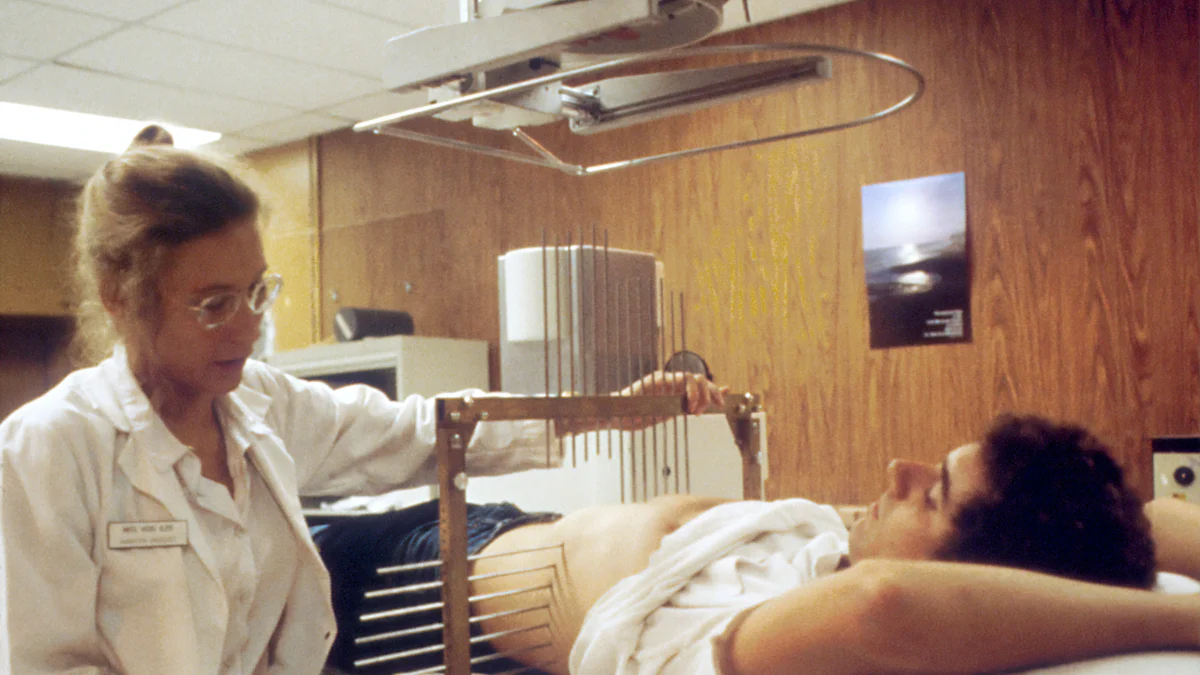How to go private for that vital operation and get the NHS to pay for it

You might wonder if it's possible to go private for a vital operation and still have the NHS cover the costs. This option exists, but understanding the process and criteria is crucial. In 2023, private operators performed 1.67 million procedures on NHS patients, showing a growing trend. Nearly 900,000 admissions to private hospitals highlight the increasing reliance on private healthcare. To navigate this path, you need to grasp the necessary steps and requirements. By doing so, you can make informed decisions about your healthcare options and potentially reduce waiting times for essential treatments.
Understanding NHS Funding for Private Operations
Criteria for NHS Funding
To have the NHS fund your private operation, you must meet specific criteria. The NHS typically covers private surgery costs only under certain circumstances. You need to demonstrate that your clinical circumstances are exceptional. This means your condition must be unique or severe enough to warrant special consideration. The NHS will assess whether the treatment is available within the NHS and if it is necessary for your health. They will also consider if the treatment offers significant benefits over standard NHS care.
The Process of Applying for NHS Funding
Necessary Documentation
When applying for NHS funding for a private operation, you must gather the necessary documentation. This includes medical records, a detailed letter from your GP or specialist, and any evidence supporting your case for exceptional circumstances. You should also include any previous treatments you have received and their outcomes. This documentation helps the NHS understand your medical history and the urgency of your situation.
Approval Timeline
The approval timeline for NHS funding can vary. Once you submit your application, the NHS will review your case. They will consider the urgency of your condition and the availability of resources. The process may take several weeks or even months. You should prepare for potential delays and maintain regular communication with your healthcare provider. Staying informed about the status of your application can help you manage your expectations and plan accordingly.
Steps to Access Private Healthcare

Embarking on the journey to go private for your healthcare needs involves several key steps. Understanding these steps can help you make informed decisions and ensure a smooth transition from NHS to private care.
Researching Private Healthcare Providers
When you decide to go private, the first step is to research potential healthcare providers. This involves evaluating various aspects to ensure you choose the best option for your needs.
Comparing Services and Costs
Private healthcare costs can vary significantly depending on the provider, treatment, and location. To make an informed choice, you should:
List potential providers: Start by listing providers in your area or those recommended by your GP.
Compare services offered: Check if the providers offer the specific treatment you need.
Evaluate costs: Request quotes from different providers to compare prices. Consider any additional fees that might apply.
By comparing these factors, you can identify a provider that offers the best balance of quality and affordability.
Checking Provider Credentials
Ensuring the credibility of your chosen provider is crucial. You should:
Verify qualifications: Check the credentials of the medical professionals involved in your care.
Read reviews: Look for patient reviews and testimonials to gauge the provider's reputation.
Confirm accreditation: Ensure the facility is accredited by relevant health authorities.
These steps help you select a reputable provider, ensuring you receive high-quality care when you go private.
Booking Your Treatment
Once you have chosen a provider, the next step is to book your treatment. This involves coordinating with both the private provider and the NHS.
Scheduling Consultations
Before proceeding with treatment, you will need to schedule consultations:
Contact the provider: Reach out to your chosen provider to arrange an initial consultation.
Prepare questions: List any questions or concerns you have about the procedure.
Discuss treatment plans: During the consultation, discuss the treatment plan and any potential risks or benefits.
These consultations are essential for understanding the procedure and ensuring it aligns with your healthcare goals.
Confirming NHS Funding
If you aim to have the NHS cover your private treatment, confirming funding is a critical step:
Submit necessary documentation: Ensure all required documents, such as GP referrals and medical records, are submitted to the NHS.
Follow up regularly: Keep in touch with both the NHS and your private provider to track the status of your funding application.
Plan for contingencies: Be prepared for any delays or changes in funding approval.
By staying proactive and organised, you can navigate the process of going private while securing NHS funding for your treatment.
The Role of GP Referrals
Importance of a GP Referral
Your GP plays a crucial role in your journey to private healthcare. They act as the first point of contact and provide essential insights into your medical history. A GP referral can significantly influence the approval of NHS funding for private treatment. It serves as a formal recommendation, highlighting the necessity of the procedure based on your health condition.
A referral from your GP not only supports your application for NHS funding but also ensures that you receive the appropriate care. It helps in coordinating between NHS and private providers, ensuring a seamless transition. Moreover, a GP referral can guide you towards reputable specialists, enhancing the quality of care you receive.
How to Obtain a Referral for Private Treatment
Securing a GP referral for private treatment involves a few straightforward steps:
Schedule an Appointment: Book a consultation with your GP to discuss your health concerns. Clearly explain why you believe private treatment is necessary. Your GP will assess your condition and determine if a referral is appropriate.
Prepare Your Case: Gather any relevant medical records or previous test results. Presenting a comprehensive overview of your health can help your GP understand your situation better. This information aids in making a compelling case for a referral.
Discuss Treatment Options: During your appointment, discuss the potential benefits of private treatment. Highlight any long waiting times for NHS procedures that might affect your health. Your GP can provide valuable insights into whether private treatment is the best course of action.
Request the Referral: If your GP agrees that private treatment is necessary, request a formal referral. This document should outline your medical condition and the reasons for recommending private care. Ensure that the referral includes all pertinent details to support your application for NHS funding.
Follow Up: After obtaining the referral, maintain communication with your GP. Keep them informed about your progress and any developments in your treatment plan. This ongoing dialogue ensures that your GP remains involved in your care, providing support when needed.
Private Consultant: "If requested by a private consultant to initiate or continue prescribing medications, and if the GP agrees with this advice, then this could be appropriate. However, if the GP does not feel competent to prescribe the requested medication, or they do not know if the medication best serves the patient’s need, the GP should inform the private provider that the prescriptions should be provided by a specialist."
By following these steps, you can effectively obtain a GP referral, paving the way for a smoother transition to private healthcare.
Mixing NHS and Private Treatments

Understanding the Hybrid Approach
You might consider a hybrid approach to healthcare, combining NHS and private treatments. This method allows you to benefit from both systems. You can access NHS services for routine care while opting for private treatment for specific procedures. This approach can reduce waiting times and provide access to specialised care.
To understand this approach, you need to know what each system offers. The NHS provides comprehensive healthcare services, often at no direct cost to you. However, waiting times for certain treatments can be long. Private healthcare offers quicker access to specialists and treatments but comes with costs. By mixing both, you can tailor your healthcare to suit your needs.
Managing Care Between NHS and Private Providers
Managing your care between NHS and private providers requires careful coordination. You must ensure that both providers are aware of your treatment plans. This coordination helps prevent any overlap or gaps in your care.
Communicate Clearly: Keep open lines of communication with both your NHS and private providers. Inform them of any treatments or medications you receive from the other provider. This ensures that all aspects of your care are aligned.
Maintain Records: Keep detailed records of your treatments, appointments, and medications. Share these records with both providers to ensure they have a complete picture of your health. This helps in making informed decisions about your care.
Coordinate Appointments: Schedule your appointments in a way that allows for seamless transitions between NHS and private care. Avoid scheduling conflicts that could disrupt your treatment plan.
Seek Advice: Consult your GP or a healthcare advisor if you have questions about managing your care. They can provide guidance on how to effectively navigate between NHS and private services.
By understanding the hybrid approach and managing your care effectively, you can optimise your healthcare experience. This strategy allows you to access the best of both worlds, ensuring you receive timely and comprehensive care.
Payment Options and Considerations
What Costs Are Covered by the NHS?
When you consider private healthcare, understanding what the NHS covers is crucial. The NHS may fund your private operation if it meets specific criteria. You must demonstrate that your clinical circumstances are exceptional. This means your condition must be unique or severe enough to warrant special consideration. The NHS will assess whether the treatment is available within the NHS and if it is necessary for your health. They will also consider if the treatment offers significant benefits over standard NHS care.
The NHS typically covers costs related to the procedure itself, including hospital fees and medical staff charges. However, you should confirm the extent of coverage with your healthcare provider. This ensures you know what to expect financially.
Handling Additional Expenses
While the NHS may cover some costs, you might still face additional expenses. These can include:
Consultation Fees: Private consultations often come with a fee. You should budget for these when planning your treatment.
Diagnostic Tests: Some tests may not be covered by the NHS. You might need to pay for these out of pocket.
Post-Operative Care: Follow-up appointments and rehabilitation services could incur extra charges.
To manage these expenses, consider the following strategies:
Budgeting: Create a detailed budget that includes all potential costs. This helps you plan your finances effectively.
Insurance: If you have private medical insurance, check what it covers. Some policies may cover additional expenses not funded by the NHS.
Payment Plans: Many private providers offer payment plans. These allow you to spread the cost of treatment over time, making it more manageable.
Savings: Use personal savings to cover any shortfall. Many patients use their own savings to pay for treatment in the independent sector when the NHS cannot provide it fast enough.
By understanding what the NHS covers and planning for additional expenses, you can make informed decisions about your healthcare. This ensures you receive the necessary treatment without unexpected financial burdens.
Practical Tips for Navigating the System
Communicating with Healthcare Providers
Effective communication with healthcare providers is crucial for navigating the healthcare system successfully. You need to establish a clear line of communication with your doctors, nurses, and administrative staff. This ensures that you receive accurate information and understand your treatment options.
Ask Open Questions: When discussing your health, ask open-ended questions. This encourages healthcare providers to share detailed information. For example, instead of asking, "Is this treatment necessary?" you might ask, "What are the benefits and risks of this treatment?"
Use Funnelling Questions: Start with broad questions and gradually narrow down to specifics. This technique helps you gather comprehensive information about your condition and treatment options. Begin with general inquiries about your health and then focus on specific concerns.
Clarify Doubts: If you don't understand something, ask for clarification. Healthcare professionals are there to help you, and they expect questions. Don't hesitate to seek explanations for medical terms or procedures.
Document Conversations: Keep a record of your discussions with healthcare providers. Write down key points, recommendations, and any follow-up actions. This documentation helps you remember important details and ensures you follow the prescribed treatment plan.
Patient Navigator Insight: "Successful patient interviews use a range of question types. Combining these into a set of funnelling questions can help get a more complete picture of the patient’s situation and concerns."
Keeping Track of Paperwork and Appointments
Managing paperwork and appointments is essential for a smooth healthcare experience. Staying organised helps you avoid missed appointments and ensures you have all necessary documents ready when needed.
Create a Filing System: Organise your medical records, insurance documents, and correspondence in a dedicated folder or digital file. Label each section clearly for easy access. This system helps you quickly find information when required.
Use a Calendar: Keep track of your appointments using a calendar or planner. Mark dates for consultations, tests, and follow-up visits. Set reminders to ensure you don't miss any important appointments.
Prepare for Appointments: Before each appointment, gather all relevant documents, such as referral letters, test results, and insurance information. Having these ready saves time and ensures you provide your healthcare provider with all necessary information.
Review Your Records: Regularly review your medical records to ensure they are up-to-date. Check for any discrepancies or missing information. If you find any issues, contact your healthcare provider to correct them.
By following these practical tips, you can navigate the healthcare system more effectively. Clear communication and organised record-keeping empower you to take control of your healthcare journey, ensuring you receive the best possible care.
To secure NHS funding for private operations, you must follow a few key steps. First, discuss your treatment options with your clinician. They can guide you on whether an individual funding request is appropriate. If your clinical circumstances are exceptional, your clinician can submit this request on your behalf. Navigating the healthcare system requires you to stay organised and proactive. Keep track of all paperwork and maintain open communication with healthcare providers. By being informed and taking charge of your healthcare decisions, you can effectively go private while ensuring NHS support.
See Also
Strategies To Bypass NHS Waiting Lists For Elective Care
Understanding The Legal Options For NHS Waiting List Avoidance
Reasons NHS Waiting Lists Persist Despite Government Changes
Tips To Minimise Your NHS Waiting Times Effectively
Essential Information About NHS Waiting Times You Should Have

